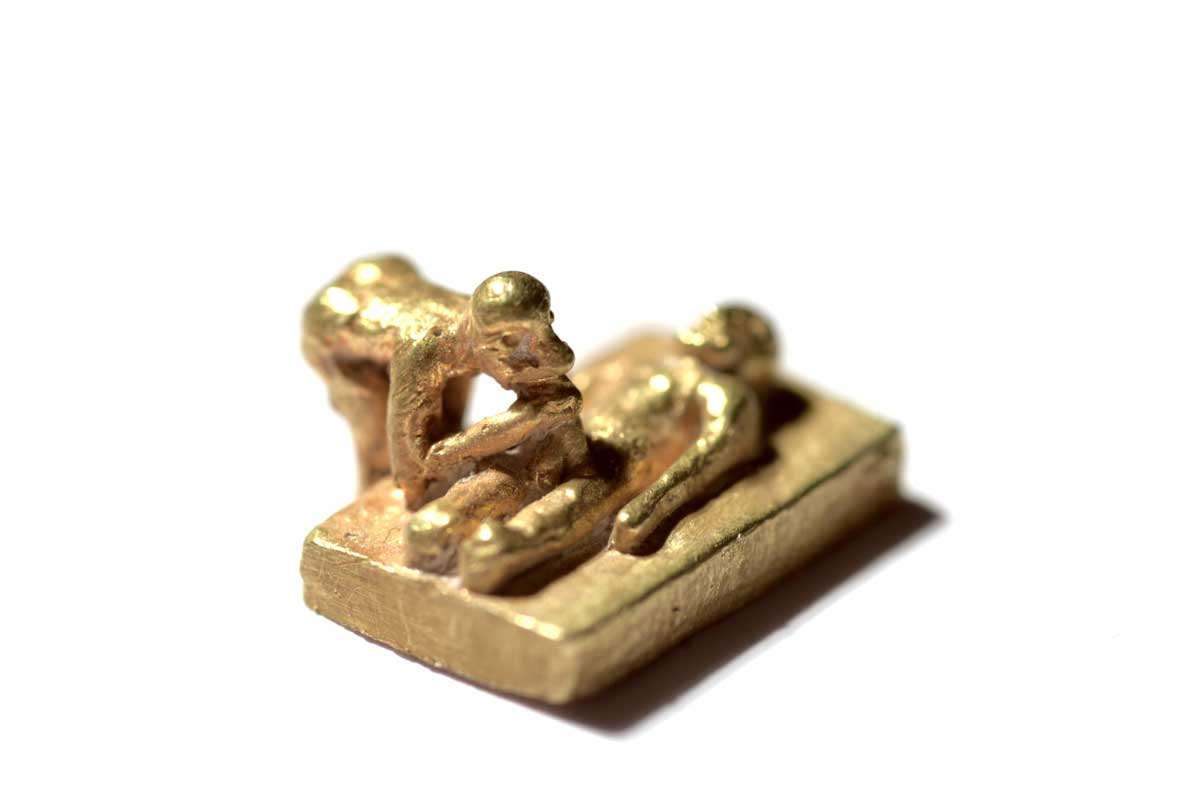
Figure from the installation Towards a Homoerotic Historiography, 2013
Carlos Motta investigates forms of representation of subjectivities and the construction of visual and cultural discourses that originate from them, focusing on identities and politics transversed by sexuality and gender. In his works, memory and history not only correspond to the past, but are also critical tools for the present, through which an oppressive idea of normativity is questioned while providing an opening to other practices and subjectivities. Towards a Homoerotic Historiography (2013-2014) examines the role of colonization in the processes of oppressing native peoples' sexuality. By addressing the relationships between religion, law, sin and crime, the work exposes the way in which practices and discourses of violence affected the bodies and the subjectivities in these peoples, erasing customs and behaviors at odds with the colonizing Christian morals. In the series Untitled Self-Portraits (1998/2016), Motta explores the creation of hybrid personifications of gender and race. They are fictional characters that present the body as material subject to transformations, evincing the malleability of identity, the politics of difference, and the broadening of the horizons of representation.
